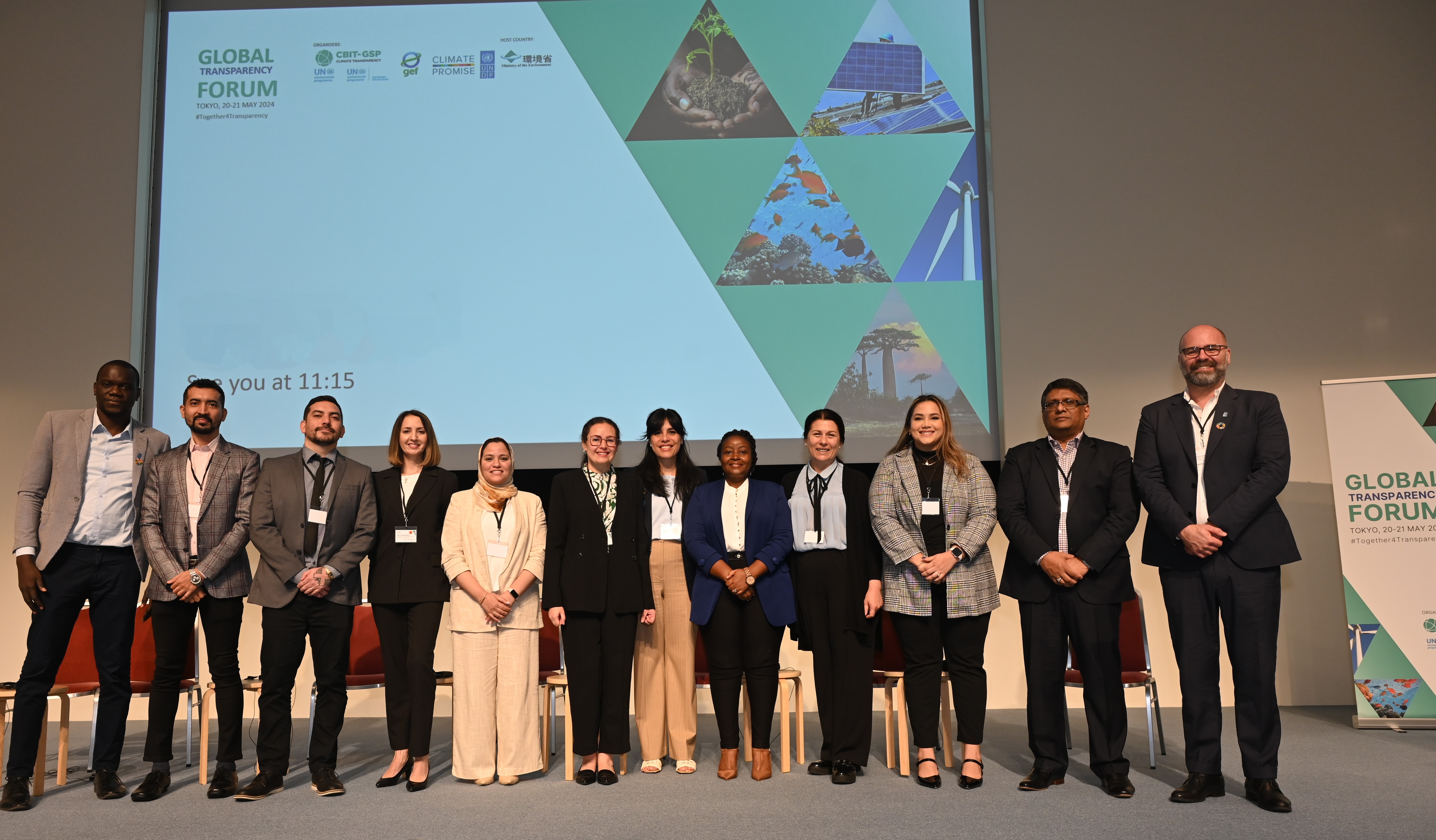At the end of 2024, most Parties to the 2015 Paris Agreement on climate change were required to submit landmark Biennial Transparency Reports (BTRs) tracking each country’s progress towards its greenhouse gas emissions targets and commitments.
BTRs are a mandatory mechanism under the Enhanced Transparency Framework (ETF) of the Paris Agreement, and are designed to create uniform transparency and mutual trust around the concrete actions countries are taking to achieve emissions reductions targets.
At the national level, the BTRs and the related national transparency process help countries track progress in the implementation of their Nationally Determined Contributions (NDCs), identify gaps and barriers, and ultimately allow them to raise the ambition of their NDCs over time.
Specialized BTR support from CBIT-GSP
So far, 93 countries have submitted their BTRs, 59 of which were developing countries. Even 11 least developed countries (LDCs) and small island developing states (SIDS), like Niger and The Maldives met the deadline despite not being required to meet the same deadline as other countries due to capacity constraints. Forty-six countries received specialized support to submit their BTRs from the The Capacity-Building Initiative for Transparency – Global Support Project (CBIT-GSP).
Funded by the Global Environment Facility, executed by UNEP and implemented by the UNEP Copenhagen Climate Centre – CBIT-GSP is designed to address the technical and financial capacity restraints faced by developing countries in meeting their reporting requirements under the ETF. CBIT-GSP works with multiple organizations and partners in the transparency field to meet and catalyze the level of support needed by countries.
Addressing limited capacities and data through needs based support
The CBIT-GSP organizes developing countries into ten different transparency networks based on geographic and language commonalities. The CBIT-GSP support for BTR submissions came through direct in-country trainings, workshops, guidance, and consultations; peer-to-peer learning programmes; and regional trainings and workshops both in person and online. This support is designed to address commonly known issues in climate reporting such as limited technical and human capacities, and insufficient institutional arrangements and data systems.
Peer to peer learning programmes aimed to provide countries with a forum to share their progress in sectors with common factors such as agriculture, and collectively learn key reporting mechanisms and formats among other elements of support. Regions such as Central Asia and the Caucasus, and Latin American countries conducted significant peer to peer learning activities, such as sector-specific cooperation between Chile and Colombia on estimating emission factors for cattle and pigs.
Other examples of direct country assistance by GBIT-GSP include training on the preparation of national GHG inventories for Kenya, and a workshop to support Egyptian national teams in preparing and reporting its national GHG inventory. Since its inception, CBIT-GSP has conducted 112 country support activities.
Expert reviews of BTRs
Experts from CBIT-GSP and UNEP Copenhagen Climate Centre also quality-reviewed 27 draft BTRs, full documents or chapters, and related National Inventory Documents. These reviews provide extensive feedback on how to improve draft reports before they are officially submitted to the UNFCCC. In total, CBIT-GSP have conducted 88 quality reviews, also including National Communications and Biennial Update Reports.
Many BTRs are still being received post the 2024 deadline, and their submission does not signal the end of the process. To ensure uniformity in reporting and a third-party confirmation of transparency, all BTRs will undergo a technical expert review process, and a facilitative, multilateral consideration of progress under the UNFCCC. This will be an important learning process for countries, which will help them for the preparation of their second BTRs, due by the end of 2026.
Common findings and enhancing trust in climate action
Thus far the first round of BTR submissions has indicated some common findings that can be used to refine later rounds of the process. These include the high utility of uniform online tools and software, the challenges for some countries in reporting back to 1990 where data is not available, and the high value of peer-peer learning in helping countries overcome common challenges.
However more work is needed to enhance countries’ familiarity with IPCC guidelines for inventories, address context-specific data availability challenges, and further build the capacity of countries to implement best-practice mitigation methodologies.
Overall, the BTRs are about establishing trust between countries regarding their Paris Agreement commitments and the submission of BTRs is thus a major milestone for climate transparency and will enhance crucial processes such as the Global Stocktake.

